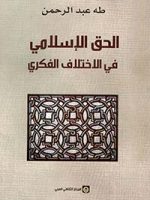The book deals with Ibn Khaldun’s heritage, especially his famous introduction, using a scientific methodology, and examines the subjective and objective influences that it produced, as well as the impact it had, whether through the emergence of a new science that Ibn Khaldun called the science of urbanism, through which he explained the reasons for the emergence and fall of the “Asabiyyah state”, and its overlap with religion. It also concludes with results that rethink the Khaldunian heritage and constitute an important scientific addition to understanding and comprehending what this scholar brought, which was studied by many researchers and those interested in it. They were preoccupied with his heritage inside and outside the Islamic world.
The full title of the book is: “Ibn Khaldun’s Thought, Asabiyyah and the State: Features of Khaldunian Theory in Islamic History”, published by the Center for Arab Unity Studies and printed eleven times.
Ibn Khaldun’s Thought, Asabiyyah and the State
د.ا9.94
The author of the book states that after spending ten years in the company of Ibn Khaldun’s Muqaddimah, he concluded that: There are still many angles that need more research despite the many studies and writings about Ibn Khaldun and his most famous book, the Muqaddimah. He also concluded that corrections must be made to return Khaldunian thought to its original framework and preserve its entirety and true identity. And its readings according to the circumstances of his social experience, his personal concerns, and his modern context.
He also pointed out through his research the methodological error that many of Ibn Khaldun’s admirers have fallen into, and we mean by that looking with the eye of the present, and starting from contemporary thought, to the opinions and theories mentioned in the Muqaddimah in social, political, and economic affairs. As well as understanding his terms and expressions in a way that deviates from his purpose, and distances them from the scope of his interest and the molds of his thinking. In his view, most Khaldunian studies rarely look at Khaldunian thought as a whole, but rather they often look at his opinions in this field independently and separately from his opinions in other fields.
| Author | |
|---|---|
| Year |
Customer Reviews
There are no reviews yet.
You may also like…
-
Introduction to the Holy Quran in Defining the Quran
د.ا12.78The author confirms that the writing of this book came in response to the circumstances after September 2001, and his desire to introduce the Holy Quran to Arab, Muslim and foreign readers as well
-
The Mockery of the Human Mind
د.ا10.65The book revolves around the framework of social research and understanding of luxurious human nature, as well as an analysis of some matters of a social nature. The book also deals with the events of Islamic history in the light of modern social logic, the position of the Quraysh on the new religion, and the developments of social concepts after the emergence of religion and its impact on the Quraysh, followed by a struggle over the Islamic caliphate after the death of The Messenger Muhammad bin Abdullah.
د.ا14.20 -
The Arab Moral Mind
د.ا19.88The philosopher Al-Jabiri believes that the Arab moral mind was influenced by five legacies:
1.The pure Arab heritage
2.The pure Islamic heritage
3.The Persian heritage
4.The Greek heritage
5.The Sufi heritageMuhammad Abed Al-Jabiri believes that the origin of ethics is religion, and that reason stands behind moral judgment, as it is the basis of ethics in Islam. The Arab moral mind was exposed to the influence of political employment and the development of the concept until it reached the stage of establishing or what the writer calls “the ethics of obedience”, which crystallized with the Umayyad state in a way that serves “the unity of society and the state, inspired by the Persian heritage in particular.” He also explained the reasons for the dominance of Khosrowian values and the Persian heritage, whether at the cultural level or at the level of the structure of the state and the entity of society, in contrast to ignoring the Greek heritage, as in the texts of the philosophers Plato and Aristotle, and the medical human tendency in ethics, one of the most important pioneers of which was Ibn Al-Haytham, and also the limited influence of the philosophical tendency represented by Ibn Rushd and Ibn Bajjah, despite their cognitive importance and their criticism of the ethics of obedience, and the fog of the Sufi tendency prevailed, which tried to escape from positive resistance to negative resistance. The writer elaborated on drawing the manifestations of the moral crisis at various levels in Islamic societies resulting from this influence, where the system of the sheikh and the disciple dominated, and its owners completed their moral path, as they moved from the annihilation of ethics to the ethics of annihilation and the dropping of legal obligations.












Be the first to review “Ibn Khaldun’s Thought, Asabiyyah and the State”